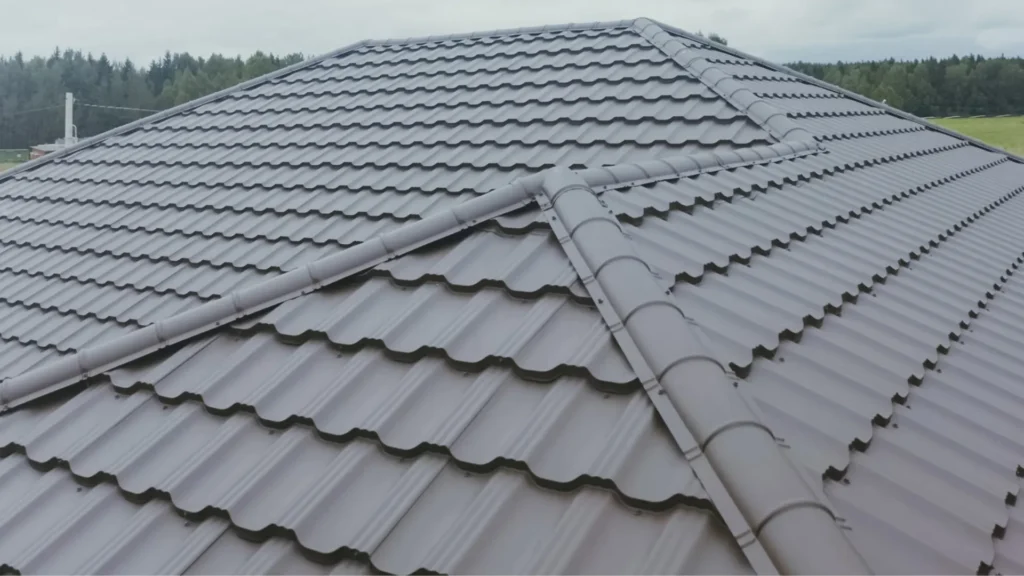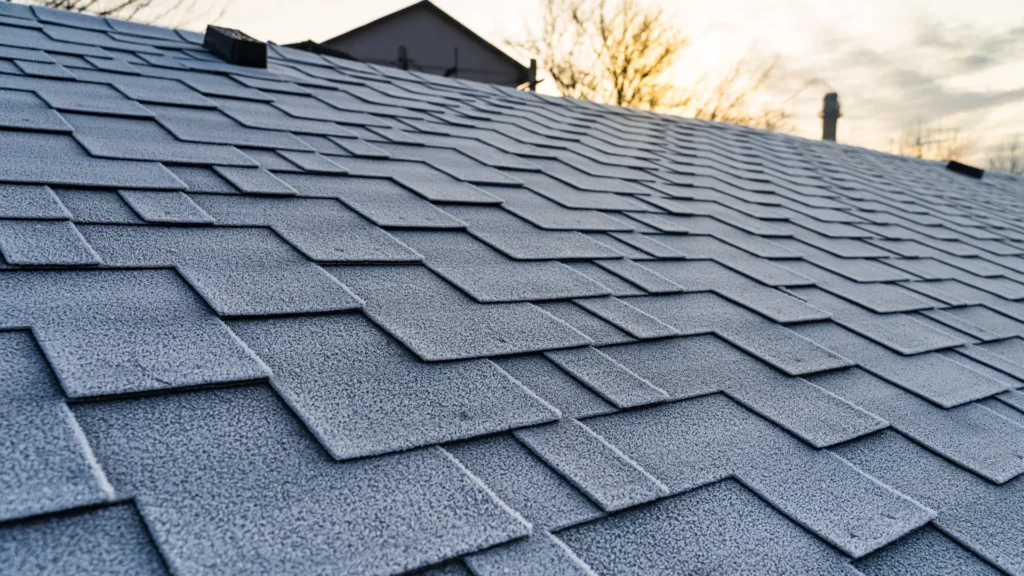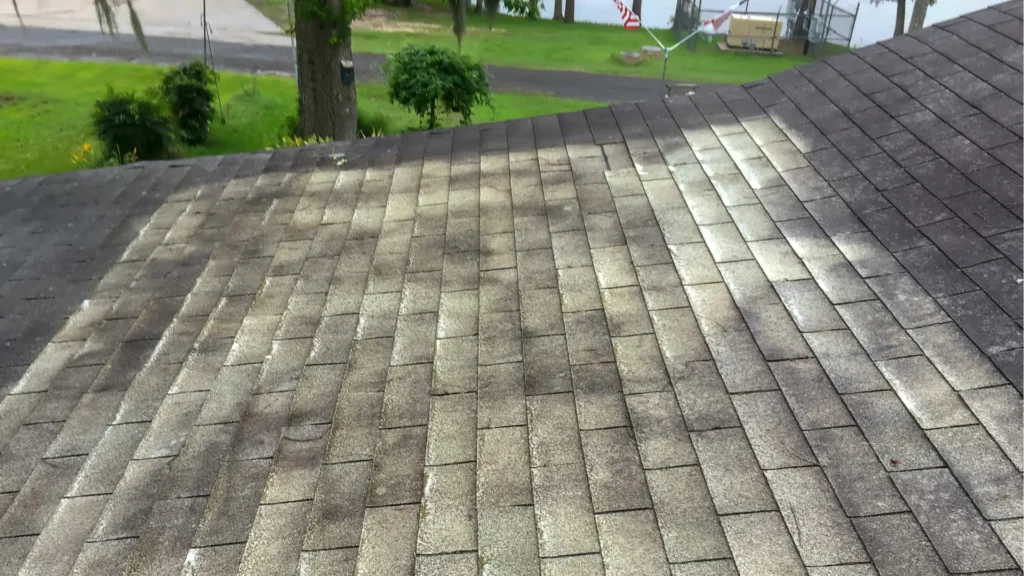Living in Warrenton, OR, means enjoying breathtaking coastal views and fresh ocean air, but it also means dealing with harsh elements such as heavy rain, strong winds, and salt-laden air. These can take a toll on your roof, making it essential to choose the right materials to protect your home.
In this guide, we will explore the best roofing options for coastal weather, their pros and cons, and key factors to consider for long-lasting protection.
The Challenges of Coastal Weather for Roofs
Before diving into the best roofing materials, it’s important to understand the specific challenges coastal weather presents.
High Winds
Coastal regions are often affected by strong winds, particularly during storms and hurricanes. These high-speed gusts can lift, crack, or completely tear off shingles and other roofing materials if they are not properly secured.
Over time, repeated exposure to strong winds can weaken the structural integrity of the roof, leading to costly repairs or even premature replacement. A well-secured, wind-resistant roofing system is essential for homes in coastal areas.
Heavy Rain
Frequent and intense rainfall is another challenge that coastal homeowners face. If a roof is not designed to effectively channel water away, prolonged exposure to moisture can lead to leaks, rot, and mold growth.
Additionally, pooling water can cause structural damage to the roof deck and underlying materials, weakening the entire roofing system. Choosing roofing materials with strong waterproofing properties is critical for preventing costly water-related issues.
Salt Exposure
Salt-laden air, carried by ocean breezes, is a major factor in the deterioration of roofing materials. Salt can corrode metal components, such as nails, flashing, and gutters, leading to rust and structural weakness. Even non-metallic materials, such as asphalt shingles, can degrade faster due to prolonged salt exposure. Using corrosion-resistant materials and protective coatings can help mitigate this issue and extend the lifespan of a coastal roof.
UV Exposure
Coastal homes often experience strong and prolonged sunlight, which can accelerate the aging process of roofing materials. Ultraviolet (UV) rays break down certain materials over time, causing them to become brittle, fade, or crack.
This is particularly true for asphalt shingles, which can lose their protective granules under continuous sun exposure. Heat-resistant and df can help maintain durability and energy efficiency in coastal homes.
With these challenges in mind, selecting the right roofing material is essential for long-term performance and protection. Now, let’s explore the best roofing options that can withstand the demanding conditions of coastal environments.
Best Roofing Materials for Coastal Homes
Choosing the right roofing material is crucial for coastal homes, as they must endure the challenges we have discussed. The best options provide durability, longevity, and resistance to harsh environmental conditions. One of the most reliable choices for coastal roofing is metal roofing, known for its exceptional strength and resilience.
1. Metal Roofing

Metal roofing is an excellent option for coastal homes due to its ability to withstand extreme weather conditions while maintaining structural integrity over time. It is resistant to winds compared to traditional asphalt shingles that can easily be lifted or torn off during storms. Metal roofing when installed properly can endure hurricane-forced winds without sustaining significant damage. This makes it an ideal choice for homeowners in storm-prone coastal regions.
Another key benefit of metal roofing is corrosion resistance. Coastal air contains high levels of salt, which can cause rapid deterioration in many materials, especially untreated metals. However, certain types of metal roofing, such as aluminum and galvanized steel, are specifically designed to resist rust and corrosion. Aluminum, in particular, is naturally resistant to salt damage, making it a preferred choice for homes near the ocean. Galvanized steel, coated with a protective layer of zinc, also holds up well against salt-laden air, further enhancing its longevity.
When it comes to durability, metal roofs offer impressive longevity, often lasting between 40 to 70 years with proper maintenance. This makes them a cost-effective investment, as they require fewer repairs and replacements compared to other roofing materials. Unlike asphalt shingles, which may need replacing every 20 to 30 years, metal roofing provides long-term protection, reducing maintenance costs and increasing home value.
Beyond durability, metal roofs also contribute to energy efficiency. Their reflective properties help deflect sunlight, preventing excessive heat absorption and reducing indoor cooling costs during hot summer months. Some metal roofs even come with specialized coatings that further enhance their energy efficiency by minimizing heat transfer. This can be particularly beneficial for coastal homes, where intense sunlight and high temperatures can drive up energy consumption.
Considerations:
While metal roofing has many advantages, there are a few factors to consider before making a decision. One potential drawback is that it can be noisier in heavy rain compared to other roofing materials. However, this issue can be mitigated by installing proper insulation and underlayment, which help absorb sound and reduce noise levels inside the home.
Another consideration is the higher upfront cost of metal roofing compared to more affordable options like asphalt shingles. While the initial investment may be higher, metal roofs offer long-term savings through their extended lifespan, durability, and low maintenance requirements. The reduced need for frequent repairs and replacements makes them a financially smart choice for homeowners looking for lasting protection.
2. Asphalt Shingles

Asphalt shingles are one of the most commonly used roofing materials in the United States, and for good reason. Their affordability makes them an attractive option for homeowners looking for a cost-effective roofing solution without compromising on performance. Compared to premium materials like metal or clay tiles, asphalt shingles have a significantly lower initial cost, making them accessible for a wide range of budgets.
One of the key benefits of asphalt shingles is their moderate wind resistance. While standard three-tab shingles may struggle in high-wind environments, high-quality architectural shingles are specifically designed to withstand winds of up to 130 mph when properly installed. This makes them a viable option for coastal areas prone to storms, though they may not offer the same level of storm resistance as metal roofing. Proper installation, along with regular inspections, can help maximize their ability to endure strong winds.
In addition to functionality, asphalt shingles offer aesthetic variety, allowing homeowners to choose from a wide range of colors, textures, and styles to complement their home’s design. Whether you prefer a classic, modern, or rustic look, asphalt shingles provide ample design flexibility. Some shingles even mimic the appearance of wood or slate, offering an upscale look without the high cost and maintenance requirements of those materials.
Considerations:
There are some drawbacks to consider when it comes to choosing asphalt roofing, especially in extreme coastal weather conditions. One of the main concerns is that standard shingles may not last as long as metal roofing in harsh environments. The combination of high humidity, salt air, and intense UV exposure can cause shingles to degrade faster than in inland areas. Although high-quality shingles can last 20 to 30 years, this is still shorter than the 40 to 70-year lifespan of metal roofs.
Another factor to consider is maintenance requirements. In Warrenton, Oregon and other coastal regions, moisture and humidity create an ideal environment for moss, algae, and mold growth, which can discolor shingles and weaken their integrity over time. Homeowners will need to perform regular roof inspections and cleaning to prevent buildup, particularly in shaded areas where moisture lingers. Algae-resistant shingles with special coatings are available to help mitigate this issue, but maintenance is still essential for longevity.
3. Composite Roofing

Composite roofing is a durable, high-performance solution made from fiberglass, recycled plastics, and polymers. Designed to mimic traditional materials like wood, slate, or tile, it offers superior weather resistance, making it ideal for coastal environments. Unlike natural materials, composite shingles resist moisture, salt, and wind damage, with many options capable of withstanding winds up to 130mph.
Lightweight yet strong, composite roofing provides the elegance of slate or wood without the need for reinforced structures, making installation easier and reducing labor costs. Additionally, its low-maintenance nature prevents issues like rot, warping, and mold growth, ensuring long-lasting curb appeal even in humid, salty climates.
Another advantage is its eco-friendliness, as many composite shingles are made from recycled materials. Homeowners seeking a sustainable, stylish, and resilient roofing option will find composite roofing to be a smart long-term investment, balancing durability, aesthetics, and environmental benefits.
Considerations:
There are a couple of factors to consider before opting for composite roofing. One potential drawback is its higher cost compared to asphalt shingles. While composite roofing is more affordable than natural slate or wood, it typically comes at a higher price point than asphalt shingles. However, its extended lifespan and reduced maintenance requirements make it a cost-effective long-term investment.
Another consideration is availability. While composite roofing is growing in popularity, it may not be as widely available as asphalt shingles or metal roofing, depending on the region. Homeowners should ensure that they have access to quality composite roofing materials and professional installers with experience in handling this type of roofing.
Additional Factors to Consider for Coastal Roofing in Warrenton
Proper Installation Matters
No matter which roofing material you choose, professional installation is crucial. Proper sealing, fastening, and ventilation ensure your roof can withstand coastal conditions. Poor installation can lead to leaks, wind damage, and premature wear, reducing the lifespan of your investment.
Protective Coatings and Treatments
Investing in coatings that resist algae, UV rays, and salt corrosion can significantly extend the life of your roof. Some manufacturers offer specialized coastal-grade treatments that enhance durability and reduce maintenance needs. These coatings help maintain the roof’s appearance and performance despite constant exposure to harsh elements.
Roof Pitch and Drainage
The design of your roof plays a key role in its ability to withstand coastal weather. A steeper roof pitch helps water drain quickly, reducing the risk of leaks and standing water. Proper drainage prevents long-term structural damage and minimizes the chances of mold and mildew growth.
Routine Maintenance
Regular inspections, especially after storms, can catch minor issues before they turn into costly repairs. Cleaning gutters, checking seals, and looking for loose shingles can prolong your roof’s lifespan. Scheduling annual professional maintenance ensures your roof remains in optimal condition, protecting your home for years to come.
Final Thoughts on Roofing in Warrenton
Choosing the right roofing material for your home in Warrenton, OR, is crucial for protecting against coastal weather conditions. Metal roofs offer unmatched durability and corrosion resistance, asphalt shingles provide an affordable and versatile option, while composite materials combine strength and beauty for a long-lasting solution. Investing in high-quality materials and proper maintenance will ensure your home remains secure and weather-resistant for years to come.
Protect your coastal home with a reliable and durable roof! Get in touch with Alejo Construction & Landscape for expert roofing solutions tailored to your needs. Contact us today to schedule a consultation and ensure your home stays safe from the elements.

